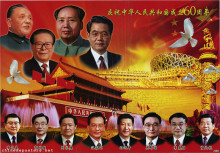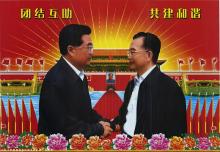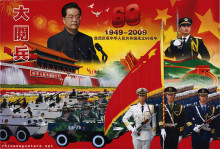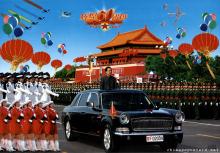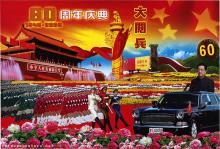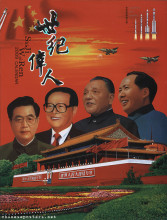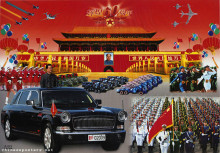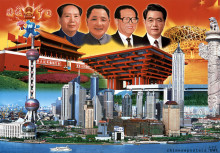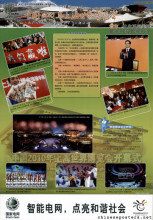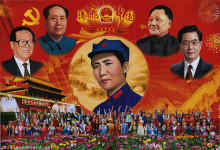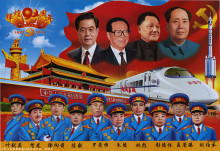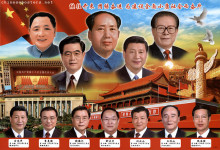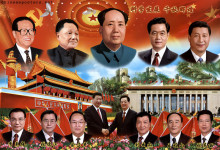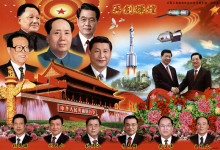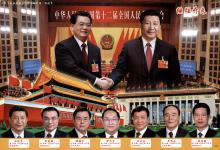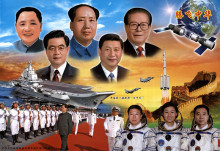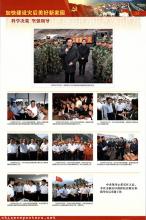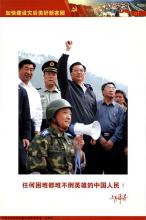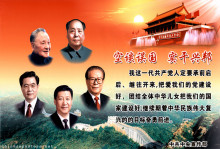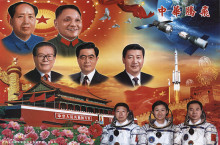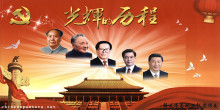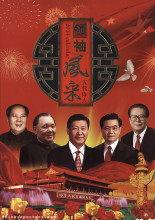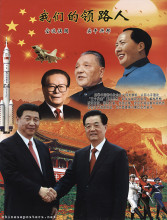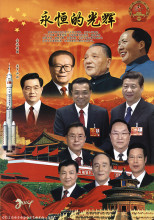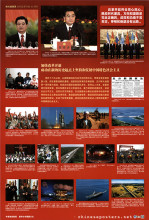Glorious 60th anniversary 1949-2009, 2009
Hu Jintao (胡锦涛) was born in a merchant family in Taizhou, Jiangsu Province, in 1942. He graduated as a hydro-electric engineer from Qinghua University in 1965. During the Cultural Revolution (1966-1976), Hu worked in construction in Gansu Province. Gansu was the region where he embarked on his political career: while serving in the CCP Secretariat of Gansu in the years 1979-1982, his qualities were recognized by high officials like Song Ping and Hu Yaobang (no relation), leading to various promotions.
60th Anniversary celebrations big military parade 1949-2009, 2009
In 1984, Hu became General Secretary of the Communist Youth League (CYL), a position that Hu Yaobang had held before. In 1985, he became Party Secretary of Guizhou Province (1985) and joined the CCP Central Committee in 1987. Hu was appointed Party Secretary of the Tibet Autonomous Region in 1988. While there, he imposed martial law in 1989 to quell the unrest. When Song Ping retired, Hu took over his position in the Politburo. In 1992 Hu joined the CCP Secretariat, allowing him to build up his network and in 1998, he became Vice-President of China. A year later, he became Vice-Chairman of the CCP Central Military Commission. As Jiang Zemin’s heir apparent, he succeeded him in 2002, serving as General CCP Secretary from 2002 to 2012 and as president of China from 2003 to 2013. During his term in office, Hu was seconded by Wen Jiabao, who served as Prime Minister.
Hu faced a rocky start in 2002: his predecessor, Jiang, clung to power, unwilling to give up his position in the Central Military Commission. Only after protests by the military, Jiang yielded his position in 2004-2005.
Struggling for Sichuan Glorious changes, 2012
Hu’s policies can be subsumed under three headings. Most famous is his policy of the Harmonious Society that "should feature democracy, the rule of law, equity, justice, sincerity, amity and vitality." This policy is also seen as one of the reasons why maintaining stability and combatting disorder became one of the focal points of Hu’s period in power. The Scientific Development concept was another plank of his policy platform, aiming for more balanced, equitable and sustainable development, rather than breakneck economic growth.
Unity, mutual aid, building harmony together, 2009
The evaluation of Hu’s term in office is mixed. On the one hand, under Hu China became a fairly wealthy country, the world’s second largest economy, with millions of Chinese escaping poverty and joining the middle class; China hosted the 2008 Olympics; launched a manned spacecraft; and expanded its diplomatic reach to Africa, the Middle East, and Latin America. At the same time, and with hindsight, many Chinese characterize the Hu era as one of missed chances, where the nation became richer, but the people poorer; where corruption escalated to unknown heights; where the obsession with maintaining stability caused a stifling of intellectual and artistic development; where necessary policy choices were avoided.
Hu is married to Ms. Liu Yongqing; they have a son and a daughter, Hu Haifeng and Hu Haiqing.
During the closing session of the 20th CCP Congress, on 22 October 2022, in full view of the representatives and television cameras, Hu was escorted off the stage by attendants. Speculation about the reasons for this is rife.

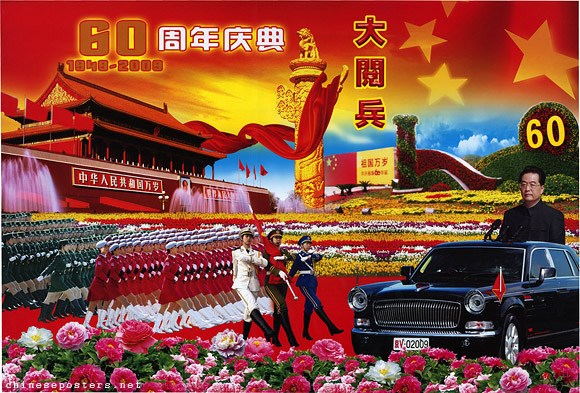
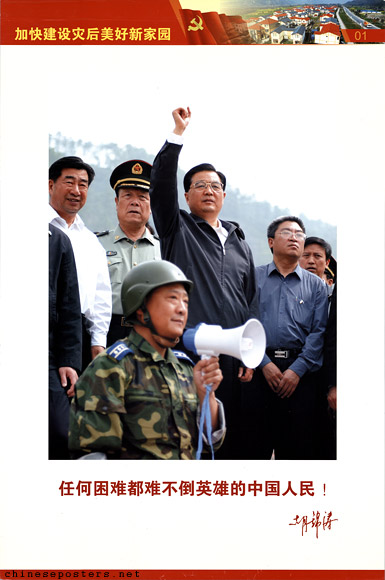


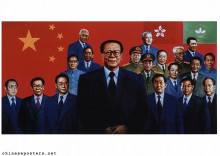
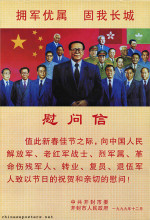
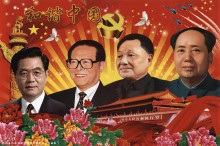
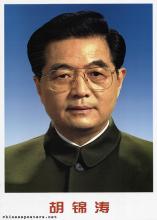
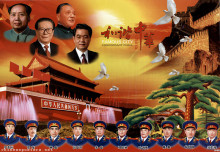
![[Mao, Deng, Jiang, Hu]](/sites/default/files/styles/medium/public/2020-06/e17-283.jpg?itok=-B_Ep-ci)
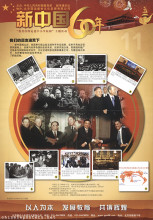
![[Mao, Deng, Jiang, Hu]](/sites/default/files/styles/medium/public/2020-06/l4-589.jpg?itok=2CvVsPz9)
